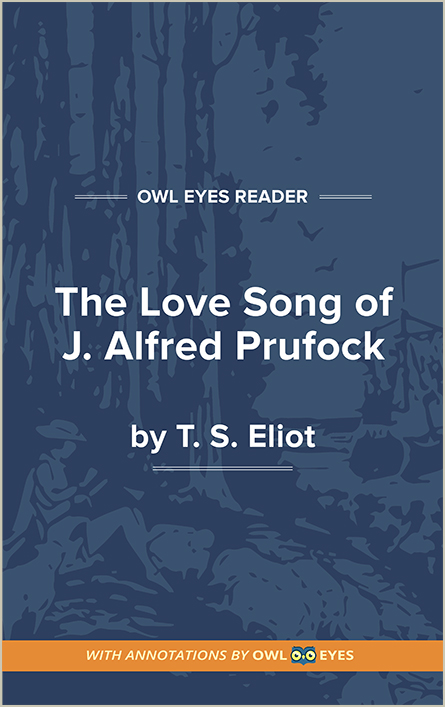- Annotated Full Text
- Literary Period: Modernism
- Publication Date: 1915
- Flesch-Kincaid Level: 6
- Approx. Reading Time: 5 minutes
The Love Song of J. Alfred Prufrock
“The fact that these things occurred to the mind of Mr. Eliot is surely of the very smallest importance to anyone, even to himself. They certainly have no relation to poetry." This statement reflects the initial critical reception of Eliot’s famous poem received after its publication in 1915. “The Lovesong of J. Alfred Prufrock” was dismissed as poorly written and nonsensical. However, literary critics now view the poem as an important literary item that heralded the cultural shift away from Romanticism to the bleak realism associated with Modernism. In it, Eliot uses a stream-of-consciousness narrative style to attack people that prize material possessions over their fellow countrymen. Crippled by indecision in even the smallest choices, the poem’s narrator suffers mental and physical inertia that causes him to lose opportunities. He poses what seems to be unimportant questions, such as, “Do I dare to eat a peach?” as if they were vital and complex, perhaps to force the audience to reflect on their own inertia and impotence. The poem has no strict rhyme scheme or meter and takes the form of a dramatic monologue that embodies multiple voices. Eliot’s fragmented structure explores visceral images of social anxiety and alienation that come with living in a modern city. Prufrock's vivid expression of regret, longing, weariness, and lamentation became a strong driving voice in the modernist period.
- Annotated Full Text
- Literary Period: Modernism
- Publication Date: 1915
- Flesch-Kincaid Level: 6
- Approx. Reading Time: 5 minutes

